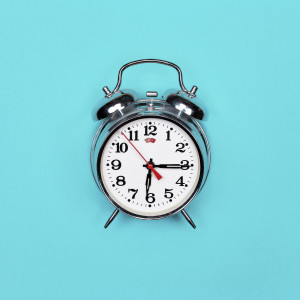‘DRUNK’ FROM SLEEP DEPRIVATION
Today, I am going to focus on the topic of physical wellbeing and sleep. The importance of sleep is seriously underestimated, even though around half of all women and about one-quarter of all men have problems sleeping. In fact, when faced with difficulties at work, 81% of all German managers experience sleep disorders. This can have serious consequences.
“On the morning of April 6, 2007, I woke up to find myself lying on the floor of my office in a pool of my own blood. As I fell, I had hit my head on the edge of my desk, injured my eye and broken my cheek bone.” When Arianna Huffington, co-founder and editor-in-chief of the Huffington Post and one of the world’s 100 most influential people according to Time Magazine, collapsed nine years ago, it made her stop and think about life. Doctors soon found out that her collapse was not due to any underlying health issues: “I fainted due to exhaustion and sleep deprivation,” she explains in her book ‘Thrive’, which is well worth reading.
Studies have shown that chronic sleep deprivation has a very strong impact on our health. To be exact, it has the same effect as the excessive consumption of alcohol. It inhibits the functioning of the brain. When we sleep, this does not mean we are inactive. While it is true that our heart rate and blood pressure go down, our bodies remain highly active. We use just as much energy when we are sleeping as when we are awake because:
- The brain processes what happened during the day and eliminates harmful waste products – in other words, it tidies up. The memory center transfers data from the short-term to the long-term memory and new connections between brain cells are generated. That facilitates learning. We gain mental power and are better able to concentrate. Sleep makes us smart and productive.
- The immune system also works at full power. When we are sleep, many important substances are released in the body and they then boost our immune defenses.
Sleep deprivation makes you ill
What are the exact adverse effects of chronic sleep deprivation?
- The harmful waste products that accumulate in the brain cannot be eliminated sufficiently, which makes it harder to process information, concentrate and solve problems. This also impairs our creative abilities.
- In addition, sleep deprivation makes a person less emotionally stable. As a result, they are less relaxed and tend to be moody.
- The Clinic of Neurology at the University of Zurich has also determined that chronic sleep deprivation causes people to take greater risks than normal – which is not ideal in a business context.
- The reduced functioning of the immune defenses leads to more infections. In addition, chronic sleep deprivation can have a serious long-term effect on your health, causing heart problems, strokes or diabetes, to name a few examples.
- A lesser-known fact is that sleeplessness causes us to gain weight because we eat more and burn fewer calories.
High follow-up costs
Overall, people who sleep less than six hours a night have a much higher risk of burnout. Even before they reach the actual point of a breakdown, the costs of sleep deprivation start to add up: In the US, the costs of lower productivity due to sleep deprivation are estimated to be around USD 63 billion. It is no surprise that VIPs like Arianna Huffington, Jeff Bezos, Warren Buffet, Sheryl Sandberg and Bill Gates swear by the cleansing power of getting enough sleep.
In my next blog, I will give you some concrete tips on how to enjoy a good and restful night’s sleep.
© Claudia Kraaz





